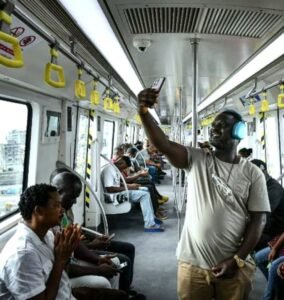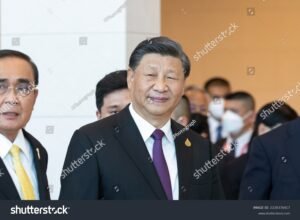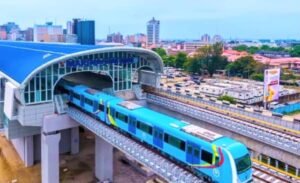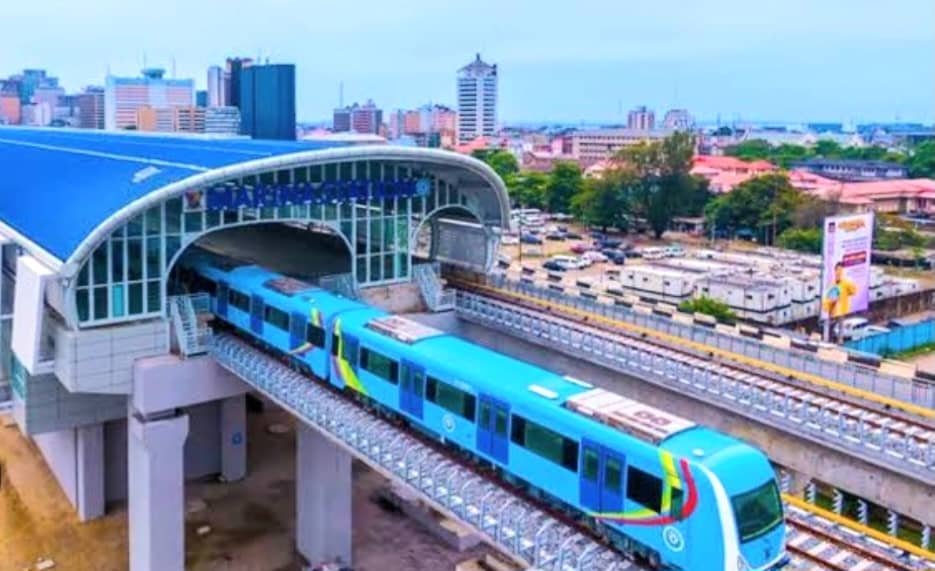By Lawal Sale
As bilateral relationships between Nigeria and China continue to flourish in the last 53 years, many landmark achievements have been recorded, epitomizing the pragmatic benefits of having a strong strategic partnership among nations.
This year, between Sept. 4 and Sept. 6 to be specific, China is hosting the 9th Summit of the Forum on China-Africa Cooperation (FOCAC) in Beijing, where President Xi Jinping is expected to deliver a keynote speech and hold relevant bilateral meetings with leaders of FOCAC member countries as well as invited representatives of African and regional organisations.

The Forum on China-Africa Cooperation (FOCAC) was established in 2000 as a triennial platform for high-level political coordination, marking the beginning of a new era in global relations. Through the FOCAC platform, China and Africa have solidified their win-win cooperation in fostering dialogue and collaboration for a shared future for mankind.
It is evident that trade and investment volumes in many African countries have increased exponentially, with China as a leading trading partner of the African continent. Chinese investments cut across diverse sectors, including digital economy, blue economy, creative economy, rail and road infrastructure, energy projects, dams, free trade zones, and airport terminal constructions, agriculture, health and education.
Nigeria, as one of the major partners of China and a pioneer FOCAC member-state, would be participating in the September summit, and President Bola Tinubu is leading Nigerian delegation to the summit and hold bilateral talks with President Xi Jinping.
There are a lot of expectations from the bilateral talks, as Nigeria and China have all along been involved in several economic programmes.
Nigeria is now China’s largest engineering contracting partner in Africa, the second largest exporting market, third largest trading partner and major investment destination in Africa.

In Nigeria, under the FOCAC platform, many projects have been initiated and successfully executed in the last two decades. There are dozens of Chinese companies operating in Nigeria and one of the prominent Chinese firms involved in infrastructure development projects is China Civil Engineering Construction Corporation (CCECC). The corporation has been operating in Nigeria in the last 40 years.
It is on record that CCECC Nigeria has been able to execute and complete a number of major railway projects aimed at boosting the transport infrastructure of the country. These projects include the Lagos-Ibadan railway, Lagos Rail Mass Transit project (Blue LRMT), Abuja Rail Mass Transit (ARMT) among others.
Such infrastructure is vital to a society and economy because it connects workers to their workplace, enables trade, powers business, create job opportunities and generally makes life easier for the people.
Some independent surveys carried out at the Abuja and Lagos stations of Lagos-Ibadan Railway, the Lagos Rail Mass Transit (LRMT blue line) and the Abuja Rail Mass Transit (Abuja light rail) ventures indicated the enthusiasm and satisfaction of commuters regarding their new mode of transportation. The consensus of opinion on the modern rail systems that it was safe and convenient, with an appreciable reduction in travel time.

Checks and surveys at the Ibadan end of the famous Lagos-Ibadan railway, revealed that in the 39 months of its operations, the railway had successfully and safely operated over 6,500 trains with cumulative passenger count exceeding 2.5 million. The Lagos-Ibadan railway had also been able to reach a record of conveying up to 150,000 passengers in a day and goods totalling the weight of more than 300,000 tonnes.
In a testimony, Sikiru Abdullatif, a passenger on the Lagos-Ibadan rail route, particularly noted that the passenger coaches were spacious and clean and that all the coaches were equipped with effective air-conditioning systems.
On Lagos Rail Mass Transit (LRMT) popularly known as Blue Line, the survey found that a significant achievements were made in terms of efficiency in its operations. The LRMT celebrated its one year anniversary of operations this September, noting also that the it had successfully covered a total of operation distance of of 215, 000 kilometres and conveyed a total of 1.72 million passengers during the one year period. The LRMT project also provided a lot of employment opportunities, numbering more than 400 technical staff and 40 managerial positions to Nigerians, giving them access to improve their skilled and and managerial talents.

Some of the passengers interviewed at the Marina station said that the LRMT project had eased their pains of spending several productive hours in traffic jam on Lagos roads. They commended the Lagos State Government and the Chinese contractors for providing succour amidst the precarious Lagos road traffic situation, particularly during the rush hours.
The feeling among the commuters generally was that of joy and excitement.
Mr Jacob Adetutu, a passenger at National Theatre station, said that he started using the LRMT since its inauguration, adding that his experience had been wonderful. He, however, underscored the need for the creation of more lines to cover those areas bordering neighbouring states in particular.
At the Abuja Rail Mass Transit (ARMT), the survey conducted showed that the ARMT, popularly called “the Abuja Monorail”, since its inauguration about 100 days ago, conveyed over 207,000 commuters traversing 12 stations and 2 lines that terminate at the airport station. It will be recalled that the Abuja Light Rail Mass Transit was the first urban rail transit system in Nigeria’s capital and a significant project that made lives of the Abuja commuters easier.
More than 1,000 Nigerians were undergoing training at the Abuja Rail Mass Transit in areas such as train driving, communication and signals, engineering, dispatch, diesel multiple unit, station manager among others.

A passenger on Abuja Rail Mass Transit trains, Abdulkarim Suleiman, who was interviewed at the Abuja Metro Station, while travelling to the Airport Station, said that he found the monorail a more convenient means of reaching the Nnamdi Azikiwe Airport from the city centre. He added that it was cheaper, safer and time-saving to travel by train using motor vehicle. Railway transportation has become a choice for both commuters and movement of goods for Nigerians.
By and large, the 9th FOCAC summit this September is largely expected to open up new frontiers of socio-economic policies that will ultimately fast-track Nigeria’s national development and touch the lives of the citizens in a more pragmatic way.
— Lawal Sale is an Abuja-based Global Affairs Analyst. (lawalmaida1@yahoo.com)










